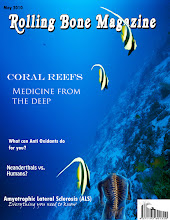
Written: Meagan Olivier
Flowers for Algernon is a beautifully written novel by Daniel Keyes. It portrays the struggles of one man questioning the boundaries of ethics in medicine. The story is told through a series of progress reports written by a young mentally disabled man named Charlie Gordon. Charlie becomes the first-human test subject for an ambitious brain experiment to make him "smart". Keyes portrays Charlie's progress report very well through stylistically changing the spelling, grammar, word choice and sentence structure as Charlie got more intelligent. The experiment was only ever tested on a mouse named Algernon, who with surgery was able to solve puzzles at a faster rate than Charlie. Eventually Charlie surpasses the mouse and even the scientist who created the experiment. Charlie soon begins to learn different ancient languages and advance calculus, whereas months ago he couldn't even read. As Charlie continues to become smarter, he notices an odd behavior in the mouse Algernon. The mouse seems to be getting flustered with the simplest of mazes. Eventually, Algernon’s brain goes back to that of a simple mouse and dies. Charlie writes a paper on this and realizes that ultimately his fate is similar to that of the mouse. His short-lived genius soon starts to deteriorate back to its original mental capacity.
According to the book, the surgery that was performed was accomplished by removing the damage portions of the brain and replacing them with brain tissue that had been chemically revitalized to produce brain proteins at supernormal rate. This all sounds very straightforward but in reality the brain is a much more complex. Implantation of brain tissue is an extremely difficult procedure that requires doctors to have impeccable precession along with all the right conditions. Furthermore, in order for the body to accept the foreign tissue, the immune system must be lowered significantly through the use of many chemicals until it begins to accept it. In addition, they raised Charlie's intelligence by using brain proteins, an unproven and highly unlikely method of raising intelligence. Intelligence is not measured by the amount of brain proteins but rather the amount of connections between neurons. This can take a life time to develop.
The novel also explains that Charlie suffered from phenylketonuria (PKU) as a child hence his low IQ. This is a false interpretation of PKU as it does not affect IQ levels of the affected individuals. PKU is an autonomic recessive disorder. It is caused by a mutation in both alleles of gene for phenylalanine hydrozylase (PAH). This is found on chromosome 12.A mutation on both alleles, like Charlie, can cause enzymes to be inactive, causing toxics to build up and cause brain damage. Individuals without this enzyme can not convert the essential amino acid phenylalanine to tyrosine, (another amino acid). Most children born with PKU can lead very normal lives under careful dietary supervision. This discovery were made in 1951, 15 years before the publication of this novel. Although, the surgery in the novel is impossible to perform in reality, Charlie's disorder is one that affects one of every 10,000 to 20,000 Caucasian or Oriental births.
Overall this book is a very interesting read. Although the author takes many scientific liberties, it does create an intriguing plot line. This is a great novel to read if you are one to enjoy dramatic endings, saddening characters, and futuristic medical procedures.
Bibliography:
Work
Keyes, Daniel. Flowers for Algernon. Orlando: Harcourt,1994. Print.
"PHENYLKETONURIA (PKU)." Medical Information & Answers to Medical Questions - MedHelp. 2009Web. Apr. 2010.
Figures
Keyes, Daniel. Flowers for Algernon. Orlando: Harcourt, 1994. Print.
"Light Receptors In Eye Play Key Role In Setting Biological Clock, Study Shows." Science Daily: News & Articles in Science, Health, environment &Technology. Web. 10 May 2010.

I disagree about the comment that IQ is not affected by PKU...of course it is...the brain damage that occurs when untreated causes the lower IQ...
ReplyDeleteMy daughter has PKU, and even with a strict diet suffers with learning disabilities. It does in fact very much affect the brain.
Delete